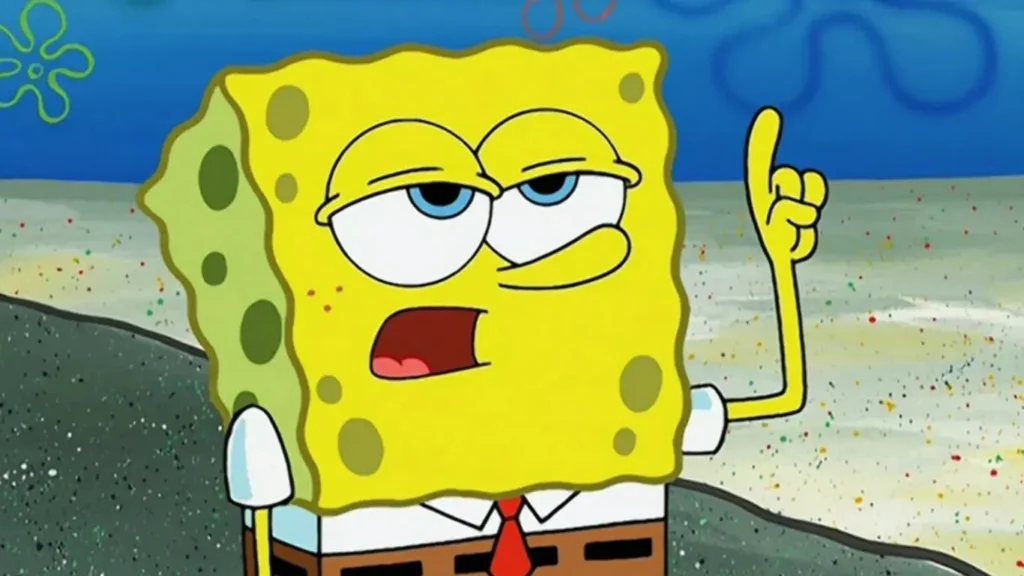We don’t just look up SpongeBob quotes to laugh — we search for something deeper. Nostalgia, comfort, clarity in chaos, or maybe just a reason to smile when adulting feels too heavy. There’s something universally healing about seeing a yellow sponge shout, “I’m ready!” when we feel anything but.
We grew up with him. And somewhere along the way, those weird underwater moments became life mantras. Quotes like “Is mayonnaise an instrument?” hit different now — not because they make sense, but because they don’t have to.
This isn’t just a list of lines. It’s a window into why these quotes resonate — emotionally, culturally, and even psychologically.
The Emotional Anchor: Connecting with Spongebob in a World That Feels Like Bikini Bottom
Let’s be real. Adult life sometimes feels like jellyfishing on a Monday — chaotic, pointless, and full of invisible stings. That’s why we keep going back to SpongeBob. He represents that inner child still shouting “I love money!” when chasing dreams, or whispering “I’m ugly and I’m proud” when we feel out of place.
These lines are more than dialogue. They’re anchors.
“I can’t see my forehead.”
This isn’t just a punchline. It’s a mood. A subtle way to express that weird feeling when nothing makes sense — and you laugh anyway.
How SpongeBob Became a Cultural Language
Quotes That Turned Into Memes (And Why That Matters)
“No, this is Patrick!”
You’ve seen this meme a million times. But the semantics of it? Identity confusion, miscommunication, defiance — all wrapped in absurd humor.
“The inner machinations of my mind are an enigma.”
Paired with a milk carton tipping over, it became internet gold. Why? Because it captures that existential dread we all feel, but with levity.
These lines created a linguistic shorthand. A way for entire generations to express sarcasm, sadness, motivation, and more — with just one quote.
Our Experience: What These Quotes Meant to Us (And Still Do)
I remember the first time I heard “I’m ready!” It was a simple catchphrase. But when I had to start a new job, scared and overwhelmed, it played in my head like a personal mantra. It wasn’t bravery — it was SpongeBob’s blind optimism keeping me afloat.
During tough times, “It’s not about winning, it’s about fun!” reminded me that not everything needed to be a competition. That joy could still exist without trophies.
Even lines like “I wumbo, you wumbo, he, she, we wumbo…” became oddly profound — a way of saying let’s not overthink this, let’s just be.
These weren’t just jokes. They became emotional companions.
The Psychology Behind SpongeBob’s Quotes
How Humor Becomes Healing
Laughter is a coping mechanism, and SpongeBob uses it brilliantly. When Squidward groans or Plankton hatches a plan that fails again, we relate to those emotional highs and lows. These quotes tap into emotional schema, letting us express what we feel — without saying it directly.
Example:
“I’m a Goofy Goober, yeah!”
This isn’t about goofiness. It’s about owning your weirdness — even when the world expects you to be serious.
NLP-aligned elements:
Emotionally charged verbs and metaphors
Symbolic anchors (SpongeBob as a personification of hope)
Multi-layered semantics (humor + existential reflection)
Quotes That Stick with Us Forever (And Why)
Most Iconic Lines — Not Just Popular, But Meaningful
“I’m not a Krusty Krab.”
→ Identity crisis disguised as absurdism.
“Once upon a time, there was an ugly barnacle…”
→ The shortest rejection story ever. Surprisingly relatable.
“You don’t need a license to drive a sandwich.”
→ Bad decisions, made with full confidence.
Each quote is a semantic fingerprint, tapping into shared cultural memory and emotional recognition.
Spongebob in Today’s Digital Age
In a time of burnout and overstimulation, Spongebob quotes have found a new home — in Twitter bios, TikTok captions, even therapy sessions. It’s not rare to see someone quote “I’m ugly and I’m proud” during a mental health awareness post. These aren’t just throwbacks — they’re tools.
Final Thoughts: Why Spongebob Quotes Still Matter
We turn to Spongebob quotes not for answers, but for recognition. To know we’re not alone in feeling weird, lost, or joyful without reason. These lines live in our memories, not just as nostalgia, but as emotional reflections of our lives.
So next time you hear,
“The best time to wear a striped sweater… is all the time.”
Let it remind you: sometimes, the simplest things can bring comfort, and the goofiest sponge can be your greatest teacher.


